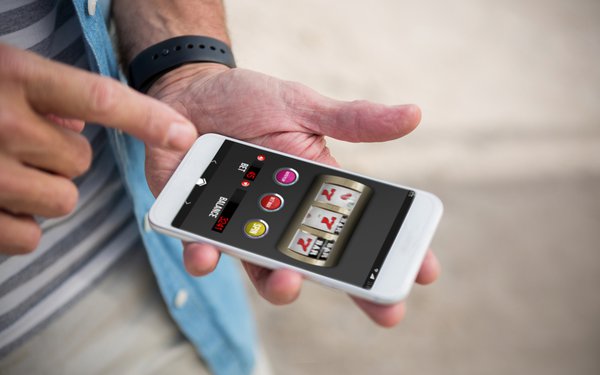Online Gamblers Battle Apple, Meta And Google Over Casino Apps
- by Wendy Davis @wendyndavis, October 26, 2023

Consumers who say they became addicted to casino apps downloaded from Google, Meta and Apple are pressing an appeals court to revive claims against the tech platforms.
Apple, Google and Meta “act as the cashier’s cage for a bevy of online casinos that offer slot machine gambling, complete with spinning reels and flashing lights,” lawyers for the consumers argue in papers filed Wednesday with the 9th Circuit Court of Appeals.
The tech platforms “broker the transfer of billions of dollars from eager gamblers to the slot machine operators, keeping a 30% cut for themselves,” counsel adds.
The argument comes in a battle that began in 2000, when gamblers across the country sued the platforms for allegedly distributing the apps, processing in-app payments for virtual currency, and taking a commission on the sale of virtual currency. The consumers also alleged that the apps themselves were illegal in some states -- a contention that hasn't yet been litigated.
advertisement
advertisement
The tech companies argued the matter should be dismissed at an early stage under Section 230 of the Communications Decency Act, which protect companies from liability over material created by third parties.
U.S. District Court Judge Edward Davila in the Northern District of California rejected that argument, ruling that Section 230 doesn't apply to claims that the platforms profited by processing payments for in-game currency.
But Davila also said “reasonable minds could differ” about the interpretation of Section 230, and authorized an immediate appeal to the 9th Circuit.
The tech companies recently argued to the circuit court that the entire matter should have been covered by Section 230. The companies contend that the claims all hinge on the apps' content -- games that allowed people to gamble using virtual currency.
The users countered on Wednesday that Section 230 wasn't meant to give tech companies “blanket immunity for nearly everything that they do, so long as it relates in some way to user content.”
“The platforms seek immunity under the Communications Decency Act for their active, voluntary role in enabling illegal gambling, but their conduct in brokering unlawful transactions is worlds apart from the publishing activity that Section 230 protects,” counsel for the consumers writes.
“At its core, this case targets the platforms’ decision to act as banker, broker, and profiteer for illegal gambling enterprises,” the lawyers add. “Their liability arises from operating the casino cashier’s cage, not from any exercise of editorial discretion or anything even resembling traditional publishing activity.”
The battle is one of several recent cases that center on the scope of Section 230.
The 9th Circuit Court of Appeals recently sided against tech companies in several of those matters. For instance, earlier this month, the court confirmed a prior ruling that allowed Facebook users to sue the platform over housing ads that allegedly discriminated based on users' race, sex, age or other comparable factors.
The appeals court rejected Meta's argument that it was protected by Section 230, writing that if the allegations in the complaint were true, Facebook would have been a “co-developer” of the ads.
The same court also recently ruled that Section 230 didn't override a local California housing ordinance that prohibited Airbnb and HomeAway.com from processing some payments.


